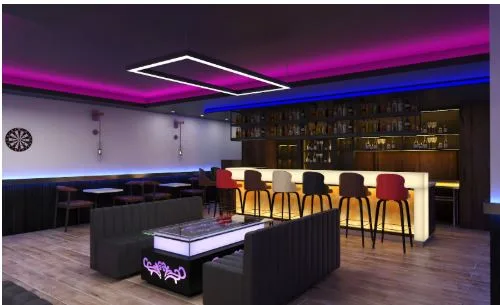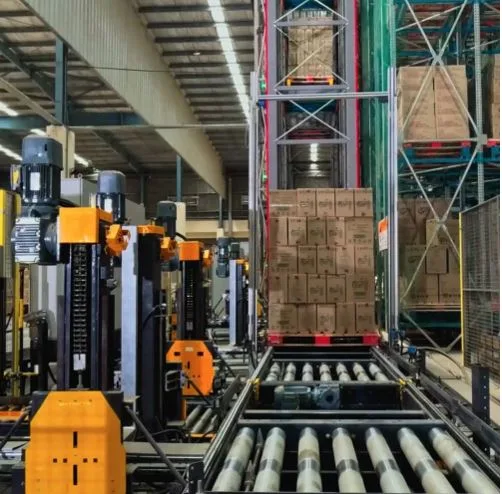Modern Smoke Shops: How Retailers Are Reinventing the Smoke Shop Experience for Consumers and Communities
The traditional smoke shop has evolved from a simple corner retailer into a curated lifestyle destination. In dense, fast-paced cities such as Hong Kong, specialty retailers are combining high-quality tobacco products, vaporizers, artisanal accessories, and cultural programming to create spaces where customers can learn, socialize, and make safer choices. One local example is the Hong Kong smoke shop Rabbit Habit smoke shop, which blends premium cigars, hand-rolling supplies, vaporizers, and lifestyle events to introduce a modern 420-inspired culture to the city. This article explores the forces reshaping smoke shops today—product curation, quality and safety standards, harm-reduction conversations, regulatory realities, and community building—and gives practical guidance for consumers and operators alike.
## The evolution of the smoke shop: from outlet to experience
Smoke shops once focused narrowly on inventory: cigarettes, rolling papers, and lighters. Over the past decade, however, retailers have diversified in response to consumer demand for variety, quality and identity-driven retail. The drivers include:
- Product innovation: Vaporizers, portable dry-herb devices, and engineered accessories from brands like Dynavap and Storz & Bickel have widened the product set beyond combustible tobacco.
- Lifestyle integration: Shops now carry fashion, art, music accessories, and host events—turning retail into social hubs.
- Consumer education: As products become more technical, customers seek expert advice on vaporizers, storage, and safe operation.
Retailers that curate thoughtfully—sourcing authentic cigars, establishing proper storage (humidores, hygrometers), and stocking reliable hardware—are positioning themselves as trusted advisors rather than simple points of sale.
## What modern consumers expect: curation, authenticity, and transparency
Today’s customers demand more than a price tag. They want authenticity and transparency:
- Brand and origin verification: Premium cigars (for example, Cuban and established marques) command trust; shops should be able to verify provenance and storage history.
- Product tutorials: Complex devices like desktop vaporizers and percolated bongs (e.g., Stundenglass) require demonstration and cleaning guidance for safe use.
- Ingredient awareness: For flavored products and concentrates, users increasingly request ingredient lists and sourcing transparency.
Retailers that provide clear, evidence-based information and hands-on demos reduce misuse risks and build long-term customer trust.
## Core product categories and what to look for
A modern smoke shop’s inventory typically spans several categories. Here’s what matters in each.
- Cigars: Authenticity and storage are paramount. Premium cigars benefit from proper humidity control and knowledgeable sales staff who can advise on ring gauge, blend, and aging.
- Hand-rolling tobacco and wraps: Freshness and packaging matter. Rolling tobacco aficionados appreciate a curated selection of blends (e.g., Virginia, Burley) and quality papers/filters (RAW, Pure).
- Vaporizers & dry-herb devices: Look for reputable manufacturers, clear warranty terms, and safety certifications. Devices with reliable battery management and temperature control reduce combustion risks.
- Bongs, pipes & grinders: Materials (borosilicate glass, food-grade metals), percolation design, and cleanability influence both flavor and hygiene.
- Shisha: For social hookah use, quality tobacco and clean, properly maintained apparatus are essential to reduce exposure to degraded materials or contaminants.
- Accessories: Lighters, humidor supplies, storage cases, and maintenance kits are part of a complete offer.
Shops that invest in vendor relationships with established brands and prioritize after-sale support create distinct competitive advantage.
## Safety, hygiene, and device maintenance: practical guidance
Safety should be a leading concern for retailers and customers alike. Practical tips retailers should share:
- Regular cleaning: Water pipes, bongs, and hookah bases accumulate residue that affects flavor and can harbor microbes. Recommend cleaning routines and non-toxic cleaning agents.
- Battery safety: For portable vape devices, advise customers on proper charging practices, avoiding third-party batteries without specifications, and recognizing signs of battery failure.
- Proper storage: For cigars, maintain stable humidity (65–72%) and temperature (16–21°C) to preserve flavor and prevent mold. Humidors and hygrometers are essential tools.
- Avoid counterfeit products: Encourage customers to buy from reputable sources and verify authentication features—this reduces risks from poorly manufactured devices.
Authoritative bodies such as the World Health Organization and national public health agencies regularly publish guidance on tobacco-related harms; retailers should keep abreast of these findings and incorporate safe-use messaging into their customer interactions.
## The role of harm reduction and consumer education
As the marketplace diversifies, harm-reduction narratives have become central. While no tobacco product is risk-free, harm-reduction approaches aim to reduce exposure to combustion products through:
- Switching to non-combustible alternatives when appropriate (e.g., regulated medicinal nicotine products under health authority guidance).
- Cleaner consumption tools and better technique: vaporizers that control temperature can reduce produced toxins compared with high-temperature combustion.
- Responsible messaging: Retailers should avoid marketing that targets minors or glamorizes use but can provide factual comparisons and resources to help customers make informed choices.
The public health conversation—supported by research from institutions such as the Centers for Disease Control and Prevention and peer-reviewed journals—continues to evolve; reputable retailers adapt by offering balanced, non-misleading information.
## Regulatory landscape and compliance: what operators must know
Smoke shops operate under a patchwork of local and national rules. In Hong Kong, for example, tobacco control laws restrict advertising, packaging, and public smoking places; retailers must ensure they comply with relevant ordinances and licensing requirements. Key operator responsibilities include:
- Age verification: Enforce strict age checks at point of sale for tobacco and nicotine products.
- Labelling and warnings: Ensure products carry required health warnings and do not violate local advertising bans.
- Product legality: Be vigilant about importing and selling products that might be restricted, such as certain flavored products or unregulated e-liquids.
Non-compliance risks fines, license revocation, and reputational damage. A compliant shop balances business innovation with legal diligence.
## Community building: events, education, and brand culture
Leading smoke shops are creating communities through curated events: tastings, product workshops, DJ nights, and lifestyle collaborations. These activities serve several purposes:
- Education: Workshops on rolling technique, cigar tasting, and vaporizer maintenance elevate customer proficiency and safety.
- Culture: Music, art, and streetwear tie-ins attract like-minded customers and help normalize responsible adult consumption within a cultural framework.
- Repeat business: Events foster loyalty; customers who attend classes or parties are more likely to become regulars.
Shops that host events should ensure compliance with local public health and licensing rules and maintain clear messaging about responsible use.
## Case study elements: what Rabbit Habit demonstrates (lessons for other retailers)
Contemporary retailers can learn from operators that successfully blend product range and culture. Key takeaways inspired by a Hong Kong-based smoke shop model include:
- Multi-location accessibility: Multiple brick-and-mortar stores make a curated offer more accessible while maintaining local community ties.
- Cross-category curation: Stocking cigars, hand-roll supplies, shisha, vaporizers, and lifestyle items caters to diverse customer segments.
- Events and activations: Regular DJ parties, workshops, and art collaborations increase foot traffic and brand relevance.
- Brand partnerships: Working with established product makers (e.g., Dynavap, Storz & Bickel) signals quality and builds trust.
These elements create an ecosystem where product, education, and culture support one another and encourage safer, more informed consumption.
## How consumers can choose a reputable smoke shop
When selecting a smoke shop, customers should evaluate:
- Product authenticity and provenance: Can staff verify origins for premium items like cigars?
- Staff expertise: Are employees knowledgeable about devices, blends, and maintenance?
- Safety and after-sale support: Does the shop offer warranties, repair services, or replacement parts?
- Transparency: Are product ingredients, device specifications, and usage risks communicated clearly?
- Community reputation: Read reviews and observe whether the shop fosters responsible, adult-oriented events.
Choosing a reputable retailer improves both the product experience and safety outcomes.
## Practical checklist for shop owners launching or modernizing a shop
Operators planning to open or revamp a smoke shop should consider this checklist:
- Curate inventory from reputable suppliers; demand authenticity documentation for premium products.
- Train staff in product safety, device maintenance, and compliant sales practices.
- Create clear in-store signage about legal age limits, safe usage, and device care.
- Invest in digital presence and e-commerce that emphasize education and accurate product data.
- Build community through small, compliant events that align with brand values.
- Keep an updated compliance manual aligned to local tobacco control regulations and public health guidance.
Following these practical steps reduces legal risk and enhances customer trust.
Conclusion: actionable takeaways for readers and retailers
Smoke shops are no longer just points of sale—they’re education centers, cultural venues, and trusted sources for a wide range of products. For consumers, the key is to buy from reputable retailers that prioritize product authenticity, safety, and clear guidance. For operators, blending curated inventory with community events and strong compliance practices creates a sustainable, trust-based business model.
If you’re exploring quality tobacco and lifestyle options in Hong Kong, consider visiting a reputable local smoke shop to see how modern retailers combine curation, education, and culture. For an example of a Hong Kong-based retailer that blends premium cigars, hand-rolling supplies, vaporizers, and lifestyle events, check out the Rabbit Habit smoke shop.
Action steps
- Consumers: Ask about provenance, storage conditions, and device warranties before purchasing.
- Retailers: Implement staff training programs focused on product safety, legal compliance, and consumer education.
- Community builders: Host small, compliant workshops to educate customers and strengthen brand trust.
By focusing on transparency, quality, and responsibility, smoke shops can offer safer, more informed experiences in today’s diverse market






